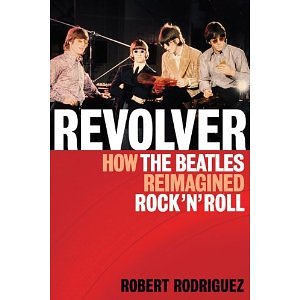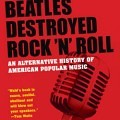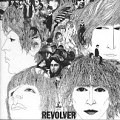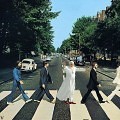- From Faith Current: “The Sacred Ordinary: St. Peter’s Church Hall” - May 1, 2023
- A brief (?) hiatus - April 22, 2023
- Something Happened - March 6, 2023

NANCY CARR • “Sgt. Pepper’s Lonely Hearts Club Band” is now routinely underrated. I recently read Robert Rodriguez’ new book, Revolver: How the Beatles Reimagined Rock n’ Roll, and the introduction threw this underrating into sharp relief. I highly recommend Rodriguez’ book in all other ways—it’s a fascinating look at Revolver’s creation, artistry, and context—but the introduction made me grind my teeth.
The path Rodriguez treads in his introduction is now very well worn: people used to think Sgt. Pepper’s was the thing, but now we know Revolver is. Fair enough, to a point. Revolver is excellent, and preferring it to Sgt, Pepper’s is defensible. But characterizing Sgt. Pepper’s as a “pleasant period piece” (excepting “A Day in the Life”) isn’t. That worldview is not praising Revolver; it’s vastly underrating Sgt. Pepper’s.
It’s John vs. Paul, all over again
I’m baffled by the way this kind of binary thinking dominates so much music criticism, and criticism of the Beatles in particular. If you want to praise one Beatle, denigrate another. To extol one album, knock one down. I’m all for drawing useful distinctions and arguing for the excellence of particular works, but this kind of prop up/kick down move has become knee-jerk and destructive. It obscures the fact that in some cases works are equally excellent, though different. No band has ever made the number of consistently excellent albums the Beatles did: consider Rubber Soul, Revolver, Sgt. Pepper’s, The Beatles [the “White Album”], and Abbey Road. It’s interesting to debate the relative merits of, say, Rubber Soul and Abbey Road, but it’s lunacy to dismiss the quality of either. And yet in recent years Sgt. Pepper’s has increasingly come to be characterized as okay, maybe even good, but not great.
This is plain crazy.
No Boomer nostalgia here, either
Let me add that I was a baby when Sgt. Pepper’s was released, and so didn’t experience the zeitgeist that’s often given as a reason for Boomers loving the album. In fact, my first exposure to the songs on Sgt. Pepper’s was (cringe) though hearing the soundtrack of the Bee Gees/Peter Frampton movie on the radio. I didn’t listen to the whole Beatles album until well into my 20s. So I’m defending the album as a relative latecomer to it, and as someone who doesn’t have a sentimental “I-heard-that-song-at-Haight-and-Ashbury-in-1967” attachment to it.
People who hear Sgt. Pepper’s as lightweight flower-power pop that served its time but has little to say to our own just aren’t listening. The album is far deeper and darker than it’s often given credit for being, and it has just as much to say today as Revolver, the White Album, or Abbey Road.
A darker view of Pepper
Sgt. Pepper’s is mainly about loneliness, aging, death, and the need to cope with these realities.
It’s Sgt. Pepper’s Lonely Hearts Club band that’s playing, and they’ve been around for 20 years, going in and out of style. Billy Shears is “getting by” with help from his friends. Whether “Lucy in the Sky with Diamonds” is or isn’t about LSD, the distorted landscape it conjures is rather sinister. The beckoning “girl with kaleidoscope eyes” is finally unobtainable. The protagonist of “Getting Better” has been cruel, and his assertion that things are improving is countered by the repeated “couldn’t get no worse.” In “Fixing a Hole” the speaker is patching the roof and decorating his room as a refuge from the people “who disagree and never win.”
“She’s Leaving Home” does something almost unthinkable in a song by the standard-bearers of 60s youth culture: it casts the older generation in almost as sympathetic a light as the younger. The girl’s parents love their daughter and didn’t know they were doing anything wrong. Contrast this with the Stones’ “Mother’s Little Helper” and the sneering divide it draws between the young and the old.
The next three songs all deal with life’s fragility. The characters in “Being for the Benefit of Mr. Kite!” are performing to aid the apparently needy Mr. Kite. His lack isn’t specified, but the feats described, the music, and Lennon’s vocal delivery underline the darker qualities of this carnival. “Within You Without You” reminds us that we’re all “very small” and dispensable; life will go on without us. And “When I’m Sixty-Four,” despite its music-hall jauntiness, reminds us of the inescapability of aging. However we may sympathize with the daughter in “She’s Leaving Home,” one day we too will be the older generation, with grandchildren on our knees.
“Lovely Rita” addresses sex, but presents its frustration (“took her home and nearly made it”). “Good Morning Good Morning” depicts the manic, mechanical daily life of city workers. Then the reprise of “Sgt. Pepper’s Lonely Hearts Club Band” tells us that the show is over.
And after the show comes the darkest song of all, “A Day in the Life.” I don’t think many people have tried to argue against this song’s greatness; it’s usually the only exception granted by critics who otherwise disparage the album. But “A Day in the Life” wouldn’t have the same force without the songs that precede it. Underrating Sgt. Pepper’s is to misunderstand the true accomplishment of Lennon’s song; it’s nothing less than the summation of the themes that have been treated more glancingly earlier in the album, and its final chord is truly The End.
The Beatles’ willingness—as twentysomethings!—to grapple not merely with death, which can be glamorous, but with aging and disappointment, is brave and bracing. In contrast, the Stones and the Who strictly evade aging, except as something unfortunate that happens to other people. (Well, the Who would eventually change their tune.)
So praise Revolver, Abbey Road, or the White Album to the skies: they deserve it. Just remember that Sgt. Pepper’s deserves no less.













I think the author’s point – having read an interview with him, as well as other reviews – is less that Sgt. Pepper is inferior per se than it is that the album is so wildly overrated, historically.
One can argue the merits on a song by song basis of one album versus another, but the fact is that there is so much hype attached to Pepper (Rolling Stone just named it the “greatest rock album ever” – again) that has nothing to do with music, it is in serious need to be brought down a notch or two. That is what the writer’s intent seems to be: to correct a warped perspective.
Revolver WAS undervalued in its day, partly due to it being short three Lennon cuts in the US, plus the whole “we’re more popular than Jeebus” stuff that happened around the same time. It didn;t get its due, except among critics and hipsters years later.
Is the building up of Revolver at the expense of Pepper maybe a bit of overcorrection? Maybe, but there sure seems to be a need for it.
I think the author’s point – having read an interview with him, as well as other reviews – is less that Sgt. Pepper is inferior per se than it is that the Beatles album that is so wildly overrated, historically.
One can argue the merits on a song by song basis of one album versus another, but the fact is that there is so much hype attached to Pepper (Rolling Stone just named it the “greatest rock album ever” – again) that has nothing to do with music, it is in serious need to be brought down a notch or two. That is what the writer’s intent seems to be: to correct a warped perspective.
Revolver WAS undervalued in its day, partly due to it being short three Lennon cuts in the US, plus the whole “we’re more popular than Jeebus” stuff that happened around the same time. It didn’t get its due, except among critics and hipsters years later.
Is the building up of Revolver at the expense of Pepper maybe a bit of overcorrection? Maybe, but there sure seems to be a need for it.
We all know why Sgt. Pepper gets denigrated these days by music critics. It’s because it’s perceived as a Paul album. And god forbid the same music critics who acknowledged the album’s greatness for so long should continue praising it once various books on the Beatles (and the Beatles’ own interviews in the 70s and after) made clear that Paul was the driving force behind the album.
And yes, I totally agree that Sgt. Pepper is so routinely dissed these days that it’s become under-rated. (Except by Rolling Stone but who listen to that magazine’s music judgment anymore?)
And don’t you find it odd that the only track that gets praised as genius anymore is A Day in the Life, and then half the time it’s identified as a “John” song, even though Paul’s role and lyrics and input in the arrangement were crucial to the final track as John’s.
She’s Leaving Home is Paul’s most under-rated song. Absolutely gorgeous. Lovely Rita is, as Brian Wilson described it, hilarious. When I’m 64 — routinely knocked by rock fascists — is actually a terrific track with a spot-on lyric.
And I totally agree, Nancy, that you don’t have to knock Revolver at all to understand why Sgt. Pepper continues to be an incredible achievement.
Glad to get this off my chest. /rant 🙂
— Drew
Skinny, I take your point about the author’s intent. The book overall is great.
I just don’t think it’s necessary to knock “Pepper” to elevate “Revolver.” And at this point, it’s becoming as much of a cliche to do so as it used to be to go into raptures over “Pepper” and not pay enough attention to “Revolver.”
Drew, I don’t know how much of the recent relative dispraise of “Pepper” is due to its being perceived as a McCartney production, but for sure “When I’m Sixty-Four” is the most dismissed song on the album. It’s perceived as fluff, but I agree with you: it’s spot-on.
Sgt. Pepper is a superb album, and a superb Beatles album.
But two things: first, it’s impossible to overstate the rapturous praise that was heaped upon the record when it came out. I mean, it was routine to see it declared the greatest work of western music of the past century. Those who’d loved the Beatles from the beginning saw it as vindication of their faith in the group, those who were late to the party saw it as an opportunity to jump on the bandwagon. Somewhere in there is a whole lot of cultural anxiety, from the days when pop music was just beginning to be taken seriously. Which leads to my second point, which that one reason why Sgt. Pepper was overvalued (and I believe it was) was because with the exception of “Eleanor Rigby” (which Roy Carr rightly described as a “musical dead end”) it was a ROCK RECORD. It is very difficult to think of Sgt. Pepper in those terms because there is no rock music, i.e., music that has at its base the classic rock ensemble.
I think this is an important distinction. The dead end of “Eleanor Rigby” led to an album of dead ends (on which “ER” would have fit very nicely). It’s very difficult to imagine expanding upon the work and sensibility of Sgt. Pepper while remaining true in any meaningful way to the idea of rock and roll, whereas the four-piece dynamics of (most of) Revolver’s cuts continue to provide a relevant blueprint for guitar-based pop and rock songwriting and arranging. Moreover, Revolver is an important response to the heightened level of musical competition that had arisen in the Beatles’ wake. It’s clear in retrospect that the band’s mid-period work is at least in part a consolidation of its musical reputation in the face of the reputedly superior musicianship and “authenticity” of such bands as the Stones, the Who, and even minor lights like the Yardbirds. Since there is no cultural “moment” attached to the release of Revolver in the same sense as there is one attached to the release of Pepper — if there was one, it was supplanted by the spectacle of Lennon’s being forced to publicly apologize for stating his opinion even as the Beatles performed their frustrating clockwork routine before diminishing audiences around the US — it’s hard to gauge what the response of the band’s competition was to the record, although I can only imagine that any carping about the group’s abilities must have been silenced by songs like “Taxman,” “She Said She Said,” and “And Your Bird Can Sing,” to name only three.
That’s a great comment, CS.
It’s very difficult to imagine expanding upon the work and sensibility of Sgt. Pepper while remaining true in any meaningful way to the idea of rock and roll, whereas the four-piece dynamics of (most of) Revolver’s cuts continue to provide a relevant blueprint for guitar-based pop and rock songwriting and arranging.
Very true, and beautifully put–but it made me think, what’s so important about “the idea of rock and roll”? If it can’t encompass truly outstanding stuff like Eleanor Rigby and/or Sgt. Pepper (or lots of the Fabs’ 1967 output), then maybe it had outlived its usefulness, or needed to be augmented with another idea that could accomodate the new music?
Thank you, CS, for helping me finally figure out exactly what I don’t like about the aesthetics of White and Let It Be–they are a retreat. A straight-up failure of imagination, cloaked in marketing wiggle-words like “authenticity” and “honesty,” a collection of pastiches because John especially was afraid of where this new post-Pepper path might go. Even when the music is great, White and Get Back are self-conscious reactions to ’67 Beatles.
Ironically, it’s turned out that the baroque, production-heavy, “concept-y” Pepper was totally authentic; it authentically encompasses the dominant mood of one precise historical moment, and in doing so, transcends its form to become something more. The roots-rock “honesty” of ’68 and early ’69 is the opposite of that. “Strawberry Fields Forever” was as honest as any song Lennon ever wrote; what does that say about “Yer Blues”? That it’s perhaps, at least partially a pose? Why? What for?
Don’t get me wrong; I love Revolver, and I love it for being the high-water mark of the guitar-based combo rock that The Beatles performed so well. But that’s not better in any objective sense than any other kind of music; its certainly no truer or more real. And it’s rock critics hewing to this arbitrary (and frankly adolescent) distinction that makes rock so self-conscious and retarded. From ’58 to ’68 there was MASSIVE innovation; since ’68 the pace of change has been much slower. To the degree that problem has been exacerbated by a too-narrow definition of rock, I say ditch it!
Yeah, CS, these were very astute comments, and I’ve never seen the point made that way about the shift or divide between perceptions of Revolver and Pepper. (By the way, I love the Tony Tyler-Roy Carr book too, but I wouldn’t use it to chart a critical course: “Eleanor Rigby” to them is a “blind alley,” but they also felt “Rain” and “I’m Down” and “Yes it Is” were wastes of time.)
I agree with Mike that “the idea of rock ‘n’ roll” should never be (or have been) the normative limit; that’s why I use the term “pop music,” not “rock ‘n’ roll,” unless I’m referring specifically to the originators of the form who arose in the 1950s. “Pop music” implies any music that’s popular, be it reggae or soul or disco or funk; “rock ‘n’ roll” or just “rock” has too often been used as the catch-all for music that isn’t and never claimed to be that. Hence “rockism,” a term of opprobrium whose time had definitely come.
a collection of pastiches because John especially was afraid of where this new post-Pepper path might go.
Maybe, maybe not: Paul’s Magical Mystery songs are much more earthbound, even regressive in a sense, than “I Am the Walrus.” It was Paul who instigated the move back to White Album pastiche with “Lady Madonna” and simpler forms with “Hey Jude.” Come White Album time, Paul was full-on for the pastiche versus John who was still going free-form at least part of the time with “Mary Jane,” “Revolution 1,” and “Revolution 9” — the last of which could be posited as the extreme realization of all that was germinated in “A Day in the Life”: private breakdown in the public arena, mass media and mass hysteria, the individual’s battle between hyperawareness and total numbness in the face of earthly horror.
“Strawberry Fields” is honest only insofar as you limit the lyrics to the line-by-line interpretation John rendered to us; read them any other way, they are as vague and nebulous and up-for-grabs as any set of lines ever written. “Yer Blues” meanwhile goes to the bone: “Feel so suicidal, even hate my rock ‘n’ roll.” No two ways of hearing that, and the WAY he sings it–well, I can only say that I feel he is being honest.
Mike, you and I clearly are going to have this argument from here unto Doomsday or “Revolution 9” time, whichever comes first.
Devin, I think we’re arguing taste here.
My point with “Yer Blues” was its form; even Lennon admitted that by 1968 white British blues was such well-trodden ground that he could claim parodic intent if necessary. Does that make it without authentic emotion? What do you think I’m going to say, parodist that I am? 🙂 But it does mean that the game has changed from remaking pop as we know it (’66 and ’67) to something less grand (’68 and ’69, until side two of Abbey Road).
To me White, and definitely LIB, is a retreat from remaking the form, into a kind of self-conscious attempt at “real rock-and-roll” directly related to the shift in the political winds between, say, December ’67 and June ’68.
This self-consciousness—this morbid need to be politically relevant, to do more than simply express his own experience truly and beautifully in music—ate away at Lennon’s internal creative process for the rest of his life. Whatever one thinks about Yer Blues or Mary Jane or Revolution 9, they’re examples of Lennon doing something others had done better, before. You can’t say that with SFF, or Day in the Life. Revolution’s a great song, but I honestly prefer Street Fightin’ Man, and it hurts me terribly to say so. 🙂
In ’67, the world looked up at The Beatles; in ’68, they came back to the pack. I’m not saying you must like Pepper better than White; but I’m also hardly unique in rating both Pepper and Revolver above White, and claiming that White is a set of flawed LPs with some good songs and lots of filler. And I think what makes so much of White feel lesser is both Lennon and McCartney’s pastiches. With McCartney, musical virtuosity is kinda the whole point; when Lennon does it, it feels like a wasted opportunity to me.
Mike, it may be taste and it may be interpretation — e.g., of what constitutes honesty. That’s not an objective value, but to say something is more honest than something else is more loaded than simply to say I like this better than that. It calls for a definition of terms.
We look at many things differently — you see the retreat of White and LIB (I see what you mean, and agree as far as it goes) as the Beatles’ self-conscious reaction to what was going on in the outside world, be that fashion, politics, musical trends. Of course we’ll never know, but my fearful scenario is that if the Beatles hadn’t done that, hadn’t gotten out of their heads at the right time, they’d have wound up blazing the art-rock trail and we’d remember them as godfathers to Yes. I’m happy with the way they went. I just wish LIB held together better.
Yo!
I love the comments Dullblog provokes, and I learn a lot from them, even when I disagree. But I can’t let “a straight-up failure in imagination” stand without chiming in. White excites me & captures my imagination to a degree that Pepper (much as I dig it) never has.
It astonished me from the moment I heard it. I *taped it off the radio* when I was 13 or so; the local AOR/hard-rock station would play albums in their entirety at 11 p.m. on Fridays, and when I learned that all four sides of the White Album were going to be featured, I got my blank cassette & boom box ready. I’d only heard a fraction of White up to that point, so the whole thing was cloaked in mystery. When the music started, I just could not believe what I was hearing….
I’d loved Revolver (& to a lesser degree, Pepper), but White made my hair stand up—both individual songs and the fact that they were all on the same album. Nearly 30 years later, I still don’t hear any filler on White. I’m getting into purely private realms here, but hey: it remade the form, indeed remakes it every time I listen to it.
I sense here a push against “rock critics” as some sort of establishment. But when I first heard it, I had *no idea* what the relative reception (historically/critically) was toward the Beatles’ releases. I was (to paraphrase Nabokov) hearing with the spine, not the brain. (The only reliable response to art.) Of course, this spine-tingling had been true with nearly everything else I’d heard by the Beatles. But if we’re talking albums, for me nothing else comes close.
Great as always, Ed, and I’m glad White has that effect on you; as I’m glad Devin likes White, too. I’m not here to argue you out of your pleasure, I only wish I shared it.
But I’m speaking from an equally heartfelt place when I say that I *do* find White a failure of imagination–not of craft or taste. Devin, that’s the thing about The Beatles–if they hadn’t backed off after Pepper, they wouldn’t have spawned prog rock; their taste was too good. I don’t know what they would’ve done; what I hope they would’ve done is below.
Sometime in early 1968, somebody important, probably John, lost faith in the group ethos. That is where their imagination fails first. And then it’s felt in the music. White is the work of four individuals, and it–like side one of Abbey Road–is brilliant, but less than The Beatles’ best, because it’s four men dreaming separately.
I hear in White the end of The Beatles’ magical ability to create serene and beautiful unity out of a horrific present; I hear their peerless support team cracking under the bad vibes; and I hear this all happening because (worst of all), Lennon wanted it to. Somehow he started to believe that growing apart was growing up, when all it really is, is growing old.
But it’s not just about them, which is what makes Lennon’s behavior so tragic. There was a period, roughly summer ’65 to summer ’67, where the same kind of completely unpredictable confluence of benign circumstances that created The Beatles, created a massive worldwide youth movement that turned away from nationalism, mindless consumption, and violence. Rubber Soul, Revolver and Pepper were the soundtrack for that, and helped inspire it as well. Was it naive? Sure. Did it have flaws? Of course. Would it have given us real solutions to problems that still plague us? Perhaps. But the important thing to remember is that spontaneous uprising was REAL, much much more real than anything ever written in Rolling Stone (or indeed this comment of mine). “All You Need Is Love” is TRUE, and when Lennon sang it in ’67, he meant it.
And it’s why it’s true that this movement had to be stopped; and it was stopped, or at least delayed, the way such things are always delayed: through violence, and manipulating people’s fear and greed. 1968 was a series of shocks, especially to young people, the people who looked to The Beatles for answers.
So now we come back to the White Album. In its fractiousness and bickering, its self-indulgence and ambivalence and confusion–gorgeous though it can be–White is proof that this reactionary counterattack was successful, and the dreams of the Sixties were going to be deferred until the next time.
After bloody 1968, certain things are “real” or “true” or “honest”: violence, ugliness, power. And certain other things–kindness, compassion, a belief that Western society is headed in the WRONG direction, and that direction can and should be changed peacefully–are dismissed as hippie dippy bullshit.
Is it strictly fair to hang all this on White, and LIB? No. But I have such faith in artists in general, and The Beatles in particular, that I believe they could’ve crafted a powerful riposte; a counterattack to the counterattack that could not be denied. But they didn’t do that. Instead they turned on each other, and themselves.
White’s a bunch of exquisite rock music, and you’ve got every right to love it–but I want more; and the world sure as hell needed more. That’s why it’s a straight-up failure of imagination. And I think the guys KNEW it, that’s why they made it two LPs. They knew it wasn’t what Rubber Soul, Revolver and Pepper had been, that it was confused and uncertain, so they gave us two discs of good instead of one of great.
But Ed, if it’s great to you, play it long and loud. And now I’m officially blown out on this topic. 🙂
In Ken Scott’s new book, doesn’t he say that the level of fractiousness during the White Album wasn’t anywhere near as bad as has been suggested? I haven’t read the book yet but I read an article in which Scott (the engineer for the album) said the amount of bickering has been exaggerated.
Personally I love Revolver AND Sgt. Pepper AND the White Album. What other band could produce three such different records — and all of them turn out so superb?
I love the White Album as it is. And as Paul said it so well, “It’s the bloody Beatles, shut up.” 🙂 But I do think it’s an album where they were each standing alone and using the others as a backup band. It’s their first “solo” album, so to speak. They’re just all on it together. But that doesn’t diminish its power for me. The problem, for me, is that after the White Album, the others are ready to collaborate as a band. And John was not.
Michael wrote: “Sometime in early 1968, somebody important, probably John, lost faith in the group ethos.” I think that’s definitely true.
And I think you can see just how true it is by the Abbey Road album. If you look at John’s role on Abbey Road, he’s barely a presence on the other guys’ songs for much of the album. The other 3 are collaborating but John has no role on Here Comes the Sun, or on Something, or even on Maxwell’s Silver Hammer. (John would later bitch about the song but he wasn’t even there for most of the sessions recording it.)
And look at John’s songs on Abbey Road: The lyrics focus repeatedly on him. He sings “come together, over ME.” He sings “I want you, I want you so bad, its driving ME mad.” Even in Because, his lyrics are about himself: it turns ME on, it blows MY mind, it makes ME cry.
Starting with the White album and by the time of Abbey Road, John clearly didn’t want to be in a band anymore. I think, propped up by Yoko, who told him he was more than just a Beatle, Lennon decided the band was holding him back. I think John wanted to be a separate entity, respected as an individual voice and as an influence on his own — like Bob Dylan. During and after the White Album, Lennon pursued a path of self, and gratification of his own ego and need for attention. And that continued into his solo career.
I think George, Paul, and Ringo always wanted to be part of a band. It was John who wanted more.
— Drew
That’s right on, Drew.
It was John who wanted more.
And ended up getting less, and giving us less too.
Look, I’m all in favor of going solo. I’ve had artistic partners (for years) and run projects (for years) and it’s a pain in the ass. You compromise constantly, work like hell to make others look good, never get accurate credit for what you’ve done–all that. It’s not only understandable that Lennon wanted to do solo work, by 1968 he’d unquestionably earned the right. Paul and George were already doing it–but they’d started in 1966 and 1967, not 1968, and that seems to have made a real difference.
1968-70 was an excessive, intense, peculiarly desperate time. What happened between Pepper and White wasn’t that John began to think of himself as an artist and genius–he’d always thought that privately–but that he began to espouse a very specific, very New Left circa 68-to-70 idea of what that meant. It wasn’t just that Lennon was “the type of person who’d want to end x and go on to y”; it’s that the culture around him was encouraging that. The left reacted to rightist counterattack with self-glorifying romantic intensity: the Revolution was at hand. It’s no wonder that Lennon made a bunch of decisions between 1968-70 that boxed him in; people really thought the Revolution was at hand; read the sources and it comes through constantly.
In ’65/’66/’67 Lennon was a popular artist with political opinions. He had a tremendous amount of influence on our culture, but primarily through his work. In ’68 and ever-after, he consciously transformed himself into a political and religious figure, a Western guru. Pepper-era Lennon is still within the normal range of celebrity, but guruhood, you can’t really un-do. And the contradictions inherent in Western guruhood—as well as the utterly vicious personal assaults that were sure to follow—destroyed Lennon, just as they destroyed all the other Western gurus of that time: Leary, Hoffman, Rubin, Cleaver, Newton (not to mention JFK, Malcolm X, Che, MLK, and RFK) all wound up in jail, dead, or “reformed” as good Western capitalists.
It was possible for Lennon to have BOTH the Beatles and a solo career; it was possible for him to express political opinions and even stump for causes using his Beatle fame/wealth/power; by ’67 the entire group was already doing that. But the apocalyptic tenor of 1968-70 tricked Lennon into exchanging a truly powerful platform that was expressing genuinely radical ideas–“all you need is love”–for one where it was easy to marginalize him, replace his main weapon (personal authenticity) with ho-hum radical chic, and eventually bring withering pressure to bear.
Yoko has some to answer for in all this. I don’t think she broke up The Beatles, but I do think–and this is backed up by literally EVERY historical source–that she viewed the group, and especially Paul, as her main threat and rival. Her own massive ego made her relentlessly encourage Lennon to think of Beatledom as a personal humiliation, diminution of his gifts, and (most damning of all in 1968-70) old-fashioned and kinda corny.
So now fast-forward 50 years: the old-fashioned, kinda corny Beatles are clearly what has and will last, and much of what Lennon thought was so innovative–from Revolution 9 to Two Virgins to teacups cut in half–has turned out to be faddish and dated. Pepper wasn’t the dead-end, Revolution 9 was the dead-end. Heroin-as-liberation was the dead-end. Anti-capitalist statements by millionaire rockstars was the dead-end. In some ways, we’ve been stuck at that dead-end ever since, so I have a great deal of distaste for it.
Is any of this getting through? It’s not that I don’t like the songs on White (and even a few on LIB); and I certainly don’t mind others liking it. But, for me, its an aural record of a change that brought nothing good. But, as ever, YMMV.
Strongly agree, Michael. All the historical pressures you mention plus Lennon’s desire to escape his marriage and fatherhood spelled the end of the Beatles. I think the main thing Ono gave Lennon was a way to leave a life he felt trapped in while feeling absolutely justified in doing so.
Sanctified, even: he became one of “Two Virgins” with “a love that has no past.” Not hard to understand the appeal of that. But I increasingly think — and reading “Life After Death . . .” reinforced this for me — that this mythology became another trap, and one harder to escape.
It’s interesting that Lennon was hard on “Pepper” in practically every interview I’ve read. Well, he needed to be: it received such high praise that it posed the biggest threat to his contention that the Beatles were “just a band” that made it big. In one sense, of course that’s true. But in the larger sense it wasn’t true (and not just because of “Pepper,” of course), and Lennon was too smart not to know that.
I too hear disintegration in the White Album and “Let It Be,” though I can enjoy much of both. “Abbey Road” feels different — it’s a consciously crafted farewell statement. All the sadder for establishing that when the four of them could play together, no one was better.
[…] my love for Pepper many times before (probably most lucidly here), and Nancy has written nicely here. It’s not as though the album needs defenders. Or does […]